© Instagram.com/kadyrov.95
In June 2021, Russian President Vladimir Putin encouraged the head of the Chechen republic, Ramzan Kadyrov, to run for a fourth term in September’s regional elections. “Thanks to your personal, immediate and sometimes direct commitment, Chechnya has become one of the safest regions of the Russian Federation,” Putin said, wishing Kadyrov good luck in his re-election.
Kadyrov doesn’t really need luck. With the Kremlin’s blessing, his re-election will probably be a foregone conclusion; the climate of fear in Chechnya is incompatible with free or fair elections.
After having been appointed president of Chechnya by Vladimir Putin in 2007, Ramzan Kadyrov was given a second term by then-Russian president Dmitry Medvedev in 2011, followed by a unanimous vote by the region’s legislature.
During that term, the post of “president” was abolished and Kadyrov has since been referred to as “head” of the Chechen republic.
When the USSR collapsed in 1991, most of the republics that were encompassed by the Soviet Union declared their independence for the first time in their history and faced the challenge of creating a national identity and a strong economy, goals that many of them have yet to achieve. Russia, for its part, suffered from having lost its superpower status to the United States.
The country’s strongman, Vladimir Putin, was president from 2000 to 2008 and then prime minister. His return to the Kremlin was almost certain in the March 2012 presidential election, and he was increasingly open about his nostalgia for the USSR, which he said was nothing more than “the Great Russia”.
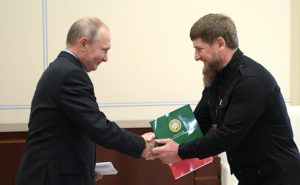
The USSR disappeared without any real cataclysm, but the following years were marked by the deterioration of the country’s infrastructure, the impoverishment of the population and the eruption of local conflicts that cost hundreds of thousands of lives.
Tajikistan was the scene of a civil war against Islamists. Armenia and Azerbaijan clashed over the separatist territory of Nagorno-Karabakh. Russia waged two bloody campaigns in its small rebel republic of Chechnya, and Georgia fought separatists in Abkhazia and South Ossetia.
But unlike Georgia, the Ukraine, Uzbekistan and other former Soviet states, Chechnya held only the barest autonomy under Soviet rule and was not considered one of the 15 official Soviet republics.
THE TWO CHECHEN WARS 1994-2009
Situated in southeastern Russia, close to the western shore of the Caspian Sea, Chechnya was conquered in the 1850s, as the Russian Empire pushed south towards the Middle East. Its largely Muslim population has always been fiercely independent and the region has been a constant thorn in the side of Russian and later, Soviet rulers.
Following the collapse of the USSR in 1991, former Soviet air force general, Dzhokhar Dudayev seized power in Chechnya and refused to obey orders from Moscow. The separatists spent the next three years preparing for a possible war with Russia while the central government in Moscow showed no reaction. In fact, it acted as if nothing of significance was happening.
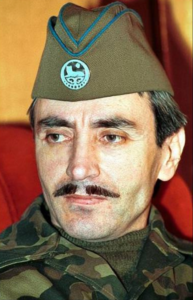
In the meantime, a wave of ethnic cleansing, beyond the control of Dudayev began in Chechnya; Russians, Tatars, Ingush and other non-Chechen peoples were persecuted as the country gradually became a centre of criminal activity.
In 1993, Dzhokhar Dudayev became the de-facto dictator of Chechnya. His opponents organised the opposition movement with support from Russia, and in 1994, hostilities began.
After an unsuccessful attempt by the opposition to take the capital Grozny, Russia decided to send troops to Chechnya. President Boris Yeltsin feared the secession of Chechnya would prompt a domino effect of independence movements within the vast Russian Federation. He also hoped to recover Chechnya’s valuable oil resources. After ineffective attempts at funding Chechen opposition groups, Grozny was bombed on 1 December 1994. This event triggered what is now known as the First Chechen War.
The ‘blitzkrieg’ ordered by the Kremlin failed to produce the expected results; the war had already continued for two years and in 1996, Moscow was forced to sign the Khasavyurt Accord, which formally recognised the independence of Chechnya. The last Russian soldier left the territory of the republic on 31 December 1996.
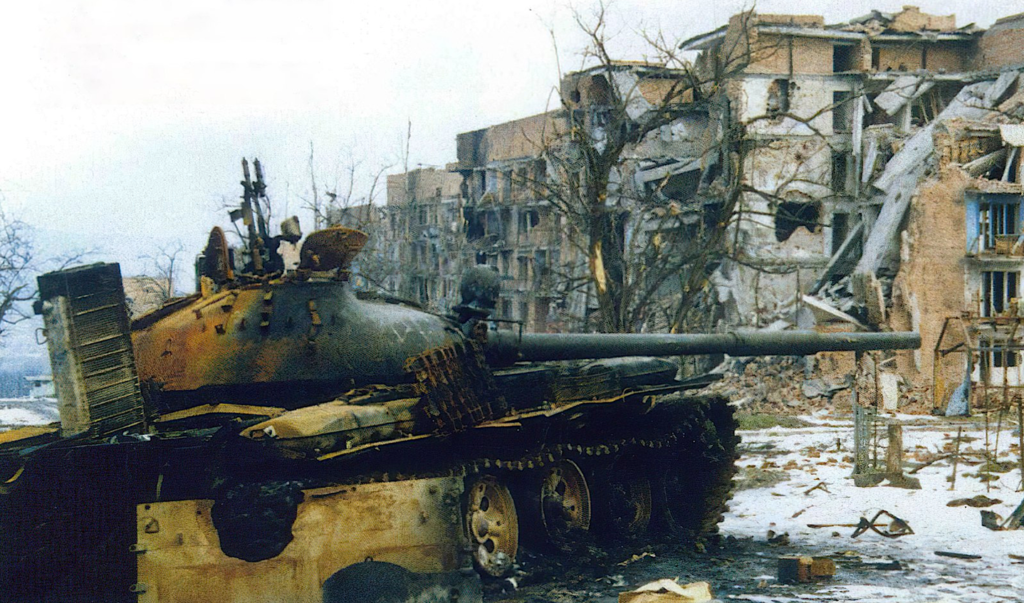
However, Islamic militancy and fundamentalism began to gain popularity in a devastated Chechnya during the interwar period (1996-1999).
Many veterans and generals of the First War began to create their own military units and thus came into conflict with the president-elect of Chechnya, Aslan Maskhadov.
During this same period, Islamists in neighbouring Dagestan had begun intensifying their political, religious and social activities.
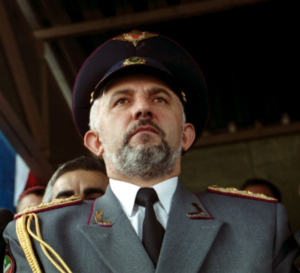
In 1999, encouraged by a number of other radical Muslim states, Chechen Islamists took the unprecedented and somewhat insane decision to invade Russian territory; on 7 August, they attacked neighbouring Dagestan and thus triggered the Second Chechen War.
However, the local population did not show signs of support for the Chechen Islamists who were defeated on the borders. But now, Russia had a valid excuse for sending troops into Chechnya again; the fate of the Chechen Republic and that of the Islamists had been sealed.
But the war itself did not end following the operation in Chechnya. Islamist fighters turned to guerrilla tactics and even terrorist methods of waging war which gradually engulfed the whole of the North Caucasus until 2009 when, on 16 April, the political regime in Grozny was terminated. This event signaled the official end of the Second Chechen War which put an end to all terrorist activities in the North Caucasus region.
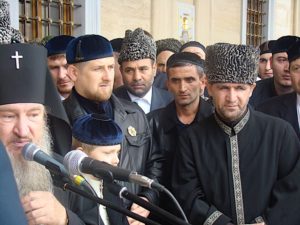
However, as a result of the two Chechen wars, the two sides to the conflict suffered very heavy military and civilian casualties. According to the United Nations Commission on Human Rights, war crimes were committed by both sides throughout the span of the two wars.
THE BEGINNINGS
In 2000, when war was still raging in Russia’s separatist and Muslim majority region of Chechnya, newly sworn in Russian president Vladimir Putin was looking for allies to restore control. Chechen separatists had left hundreds of dead in bomb attacks on civilians in Russia.
Around this time, Chechnya’s spiritual leader, Akhmad Kadyrov and his son Ramzan abandoned their anti-Russian stance and swore allegiance to Putin. This decision may have been motivated partly by personal ambition and partly by a concern with the desperate condition of the Chechen population.
It was also driven by a fear of the growing sectarian Wahabi influence on the insurgency.
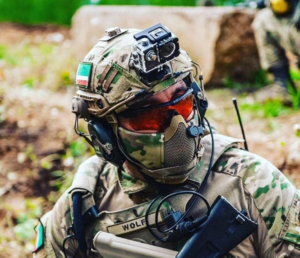
After the Russian forces seized control of Chechnya in July 2000, Akhmad Kadyrov was appointed acting head of the administration by Vladimir Putin and in October 2003, he was elected the first president of Chechnya.
Their militia, the Kadyrovstky, joined the pro-Russian front and launched a brutal crackdown on the region.
Akhmad Kadyrov had escaped seven assassination attempts since July 2000.
But in May 2004, Chechnya’s pro-Russian president was killed in an attack by Islamist separatists that left at least 32 people dead in Grozny.
It was 10:35 a.m. when a bomb exploded in the centre of the Dynamo stadium stand, where Kadyrov was attending a ceremony with Russian dignitaries commemorating the USSR’s victory over the Nazis in 1945. He died while being transferred to hospital.
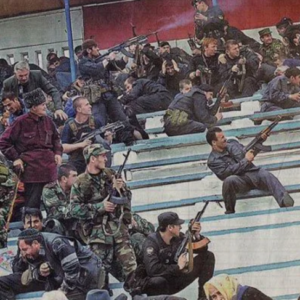
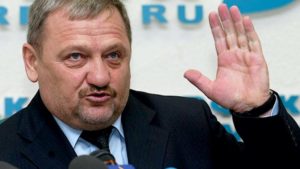
By confirming the death of the 52 year-old Chechen president, Vladimir Putin paid tribute to a “real hero”, but it is unlikely that this description was taken up in the streets of Grozny, as Kadyrov represented such a cruel embodiment of Moscow’s control over Chechnya. At any rate, his demise seriously compromised the Kremlin’s umpteenth strategy to bring the Caucasian Republic into line.
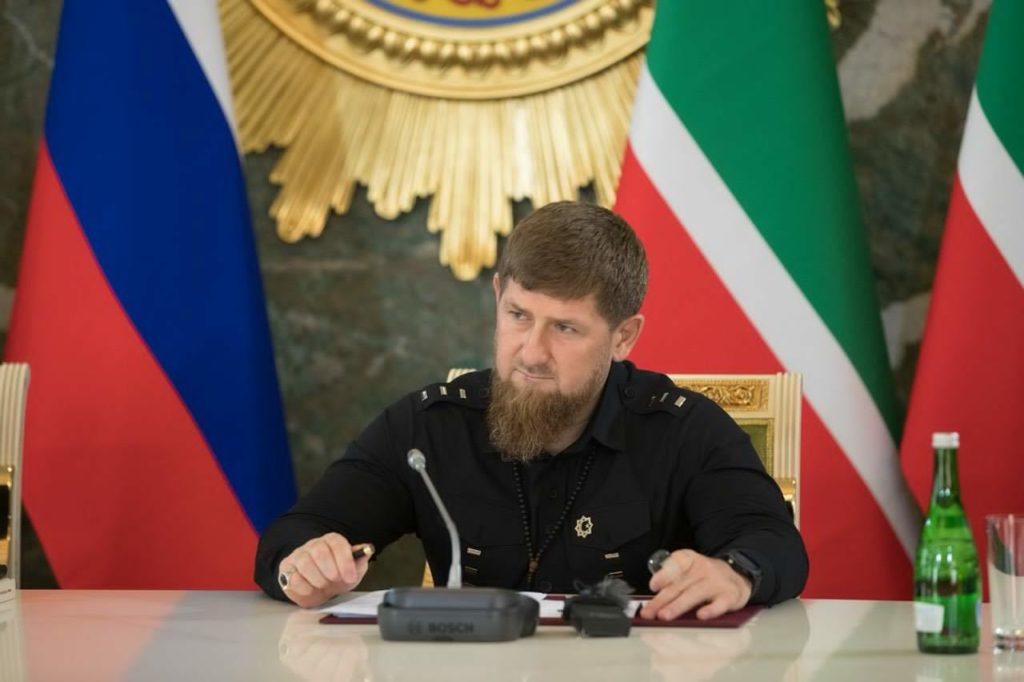
A PERSONAL LIFE OF THE FUTURE LEADER
Ramzan Akhmadovich Kadyrov was born on October 5, 1976, in the village of Tsentaroy, located in the Chechen-Ingush SSR. He was a second son and the youngest child of Akhmad Kadyrov who was the Chief Mufti of the Chechen Republic of Ishkeria in the 1990s during and after the First Chechen War.
At the outbreak of the Second Chechen War, he switched sides, offering his service to the Russian government, to later become the President of Chechnya from 5 October 2003 until May 2004 when he was assassinated by Chechen Islamists using a bomb blast during a victory parade.
In his youth, Kadyrov studied at an ordinary rural school, like all Soviet children. At the same time, he studied the military science of hillmen. Thus, from an early age, he learnt to ride and use firearms. He graduated from high school in 1992, but did not enter college because at the time, he had to take up arms and with his father to defend the independence of Chechnya. Since that period, the biography of Ramzan Kadyrov takes a military direction.
Ramzan Kadyrov likes to project the image of a devoted Muslim and he has even gone on pilgrimage to Mecca. He closely follows Chechen traditions and regularly appears in various historical costumes and plays the role of the Chechen hero in armour. he is a keen rider and owns large a number of thoroughbred racehorses.
In 2004, Kadyrov married his childhood sweetheart, Medni Muasevna who lived in the same village. As First Lady of Chechnya, she is a philanthropist as well as a fashion designer. She launched her own brand of designer clothes called ‘Firdaws’ and opened a fashion house with the same name in the capital, Grozny. The couple have 10 children, including two adopted sons.
According to local media, Ramzan Kadyrov’s wife has nothing against the possibility of her husband having several wives, since under Sharia law Muslim Caucasians can have up to four wives, but only with the consent of the main wife.
Kadyrov has repeatedly stated that his second wife can only be a woman more beautiful than Medni, but that he has not yet met such a person.
However, there are persistent rumours that Kadyrov has a second, much younger wife called Fatima. wife. There was no official ceremony as it is not possible to legitimise this second wedding under Russian law.
Other media have reported that Kadyrov has been involved in romantic relationships with a number of young women including a certain Tina Kandelaki.
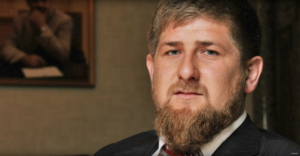
THE METEORIC RISE OF RAMZAN KADYROV
The day following the assassination, Akhmad Kadyrov’s 28 year-old son Ramzan was swiftly ushered to Moscow where he was welcomed by Vladimir Putin who then transformed him into the face of the pro-Russian front in Chechnya. The two men formed a tactical bond that came to define the new Chechen republic; Putin now had his dragon in the south.
At the time, Kadyrov was leading Chechen security forces and had been blamed for several kidnappings.
However, despite the allegations, Putin positioned him for leadership and he has been ruling the republic ever since 2007.
When asked how he planned to avenge the death of his father, this was his chilling reply :
“I’ve already killed the one I ought to kill. And those who stay hidden behind him, I will be killing them, to the very last of them, until I am myself killed or jailed. I will be killing [them] for as long as I live… Putin is gorgeous. He cares more about Chechnya than about any other republic [of the Russian Federation]. When my father was murdered, he [Putin] came and went to the cemetery in person. Putin has stopped the war. Putin should be made president for life. Strong rule is needed. Democracy is all but an American fabrication…”
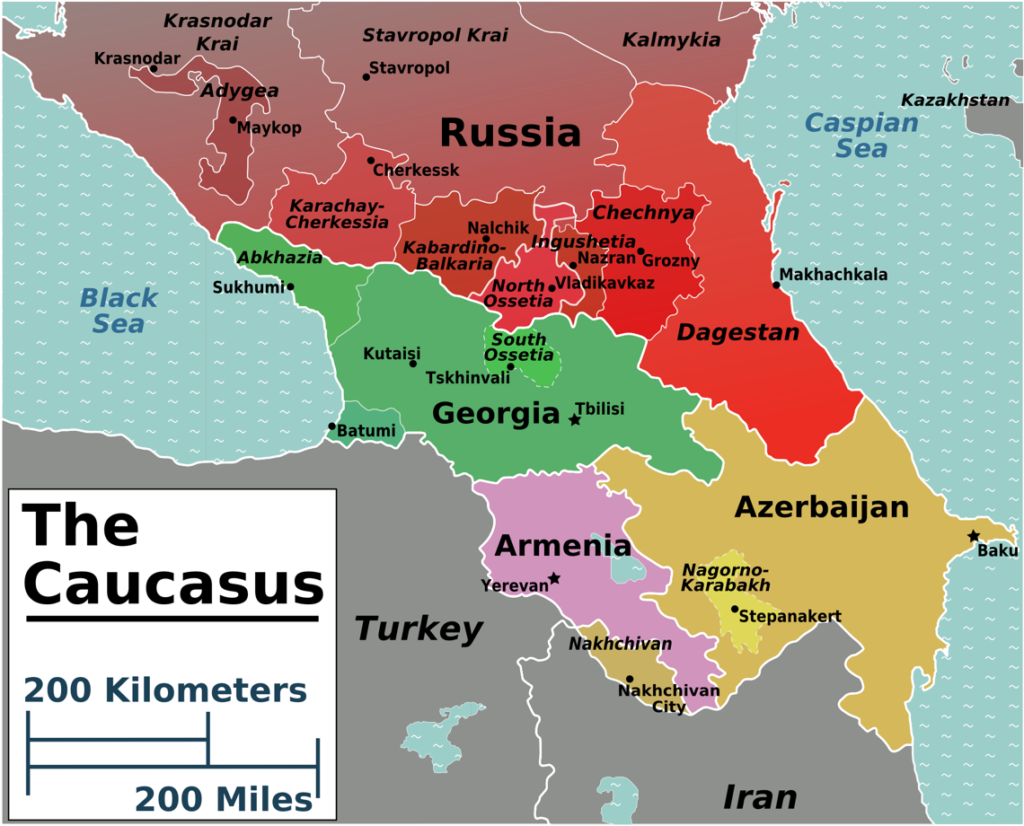
First, he was appointed by Putin as the First Deputy Prime Minister of the Chechen Republic in May 2004. One year later, he announced that Europe’s largest mosque would be built on the site of the demolished ruins of Grozny city centre. He also declared that Chechnya was the most peaceful place in Russia and that in a few year’s time it would also become the wealthiest place in the world !
In November 2005, Chechnya’s Prime Minister, Sergey Abramov was seriously injured in a car crash. Kadyrov promptly assumed the role of caretaker prime minister and very soon began to implement elements of Sharia law, banning alcohol production and gambling.
2006 saw the publication of the cartoons depicting the prophet Muhammad by Danish newspaper Jyllands-Posten. Kadyrov called the Danes spies and terrorists and banned Danish citizens from entering Chechnya, adding : “The cartoonist needs to be buried alive.”
In March 2006, the then Chechen president Alu Alkhanov appointed Kadyrov as prime minister. This position gave Kadyrov the opportunity to gradually strengthen his position at Alkhanov’s expense and surreptitiously elaborate a personality cult within the circles of power.
Following his 30th birthday, Kadyrov was handpicked by Vladimir Putin to become president of Chechnya, despite having only a rudimentary secondary education. He was given ‘carte blanche’ to use whatever means necessary to eliminate resistance movements and to force the Chechen population into submission.
In February 2011, when Dmitry Medvedev was president of the Russian Federation, he nominated Kadyrov as head of the Chechen Republic. Naturally, he was unanimously elected for a second term by the Chechen Parliament in March 2011.
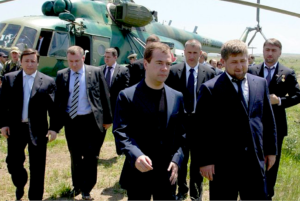
In return, the Kremlin made available huge sums of money destined for post-war reconstruction and conveniently turned a blind eye when chunks of the cash were diverted by Kadyrov for his personal use.
Kadyrov in turn, appointed his maternal cousin Odes Baysultanov as the new prime minister; this event marked the beginning of his reign as the supreme leader of Chechnya.
In order to demonstrate that Chechnya had recovered from years of conflict, he organised a football match between local team FC Terek Grozny and a Brazilian XI featuring some of its most famous footballers. He captained the home team that eventually lost 4-6 to the visitors.
ABSOLUTE POWER, NO MERCY
Among his new resolutions was the vow to put an end to all remaining guerrilla activity in the country within two months. He has acquired immense wealth, control of all media broadcasts in the region and has forced rights groups to flee Chechnya.
By 2008 Washington-based policy think tank Freedom House reported that Kadyrov had become “a law unto himself”.

In 2009, Kadyrov’s former bodyguard turned critic, Umar Israilov was abducted and shot dead in Vienna. Austrian police alleged Kadyrov could be linked to the assassination, but he was never questioned.
And within two years of his nomination as head of state, his closest political rivals, the Yamadeyev brothers who were rebel commanders during the Chechen Wars had both been shot dead. Kadyrov’s power had now become absolute.
For any Chechen who dared to question Kadyrov, the options were morbid; either die or run in fear. During a television broadcast to the nation, Kadyrov declared : “Those who bring discord between people with gossip or quarrels should be stopped. Unless we kill them, put them in prison, scare them, we’ll get nowhere”.
And nowhere seems to be safe; secretive Chechen death squads hunt Europe and further afield. Critics of Kadyrov have been brutally murdered in Berlin, Vienna, Lille and Dubai. Those who have somehow survived the attacks bring back stories of horror.
Sexual expression is forbidden and women are punished for dressing inappropriately. In fact, Kadyrov has gone public with his view that married women should expect beating from their husbands. Women who flee domestic abuse are tracked down and brought back home. Forced apologies on state-run television have become a sick tradition in Kadyrov’s regime.
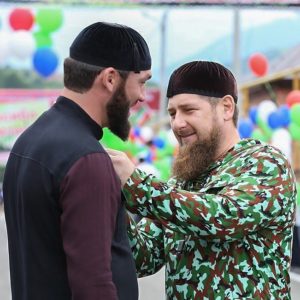
This development is not surprising. For more than a decade, under Kadyrov’s rule and with the support of the Kremlin, all forms of dissent in Chechnya have been ruthlessly suppressed.
Blatant cases of torture, enforced disappearances, extrajudicial killings and public humiliation committed by local law enforcement and security agencies under Kadyrov’s de facto control have never been properly investigated. Moscow is effectively covering up the crimes perpetrated by the Chechen authorities.
Putin’s description of Chechnya as “one of the safest regions” in the country is particularly cynical.
Recently there came devastating news about the abduction by Chechen police of a young woman who had fled domestic violence and was forcibly returned to her home. Previously, Chechen security agents working with local police in a northern Russian town, abducted a key witness in an investigation into allegations of torture. Two days later, the man was in prison in Chechnya.
In February 2021, Chechen police arrested two young bloggers who had fled persecution to another part of Russia. The two young men are now in prison in Chechnya on false terrorism charges.
In September 2020, a shocking video circulated on social networks. It showed a 19-year-old man being forced to anally penetrate himself with a glass bottle in retaliation for “spreading lies” online about the Chechen government. He was subjected to enforced disappearance, and his fate is a stark warning to all Chechens.
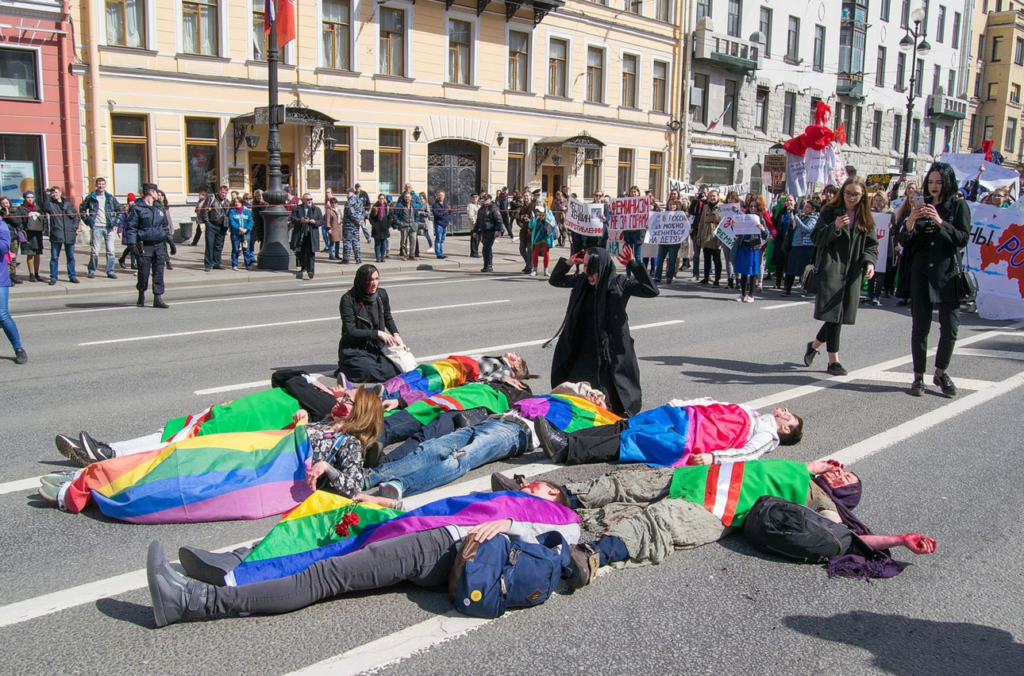
More recently, Kadyrov has turned his aggression into the Chechen Republic’s LGBTQ+ population. Homosexuality and gender non-conformity have always been taboo in Chechnya, but in 2017 Kadyrov began what has since been described as a genocide of young men and women. It all started when sexually explicit images were found on the phone of a man arrested during a drugs raid. This unleashed a craze of state-endorsed witch hunting that continues to this day.
On national television, a man, whose son had allegedly committed some such offence addressed the police officers involved in the operation to arrest him : “Today, you managed to kill this devil who was my son. You managed to kill him and Allah should be satisfied with you !”
This became a project of eliminating every person who could possibly be suspected of LGBTQ emotions or thoughts, if not activity.
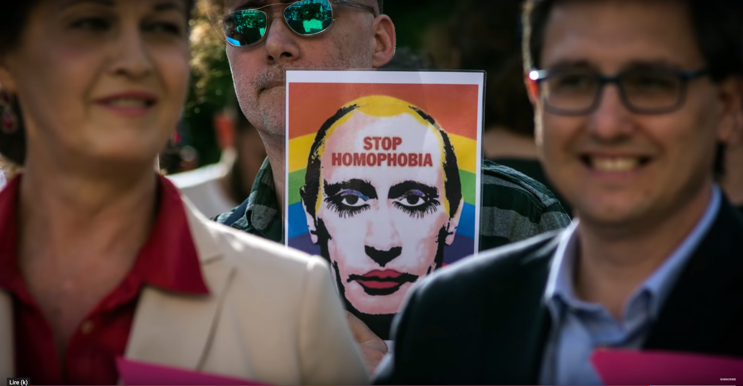
Survivors have spoken about being held in detention centres that resemble concentration camps, where they were beaten and subjected to electric shocks. Others were freed with the understanding that their own families would punish them even more severely than the state. When the media began to report this, Kadyrov declared that gay Chechens do not exist : “This is nonsense. We don’t have such people here; we don’t have any gays. Take them far away from us. To purify our blood, if there are any here, take them !”
Survivors who have managed to escape this ‘genocide’ are still fearful for their lives; fearful that Kadyrov’s death squads could come and find them.
As for his master Vladimir Putin, he rarely condemns Kadyrov and Russian money continues to pour into Chechnya’s state coffers.
INSTAGRAM STAR AND INFLUENCER
The Kremlin funds at least 80% of Chechnya’s annual budget and ramadan Kadyrov spends that money lavishly. Not only on himself but also on construction projects he constantly promotes. He often features Akhmad Kadyrov mosque, an opulent building named after his father that symbolises both Chechen renewal and Ramzan’s self-proclaimed commitment to Islam.
He has also used the money to fund his army of loyalists, the Kadirovtsky, a militia that has roots in the security forces he ran for his father.
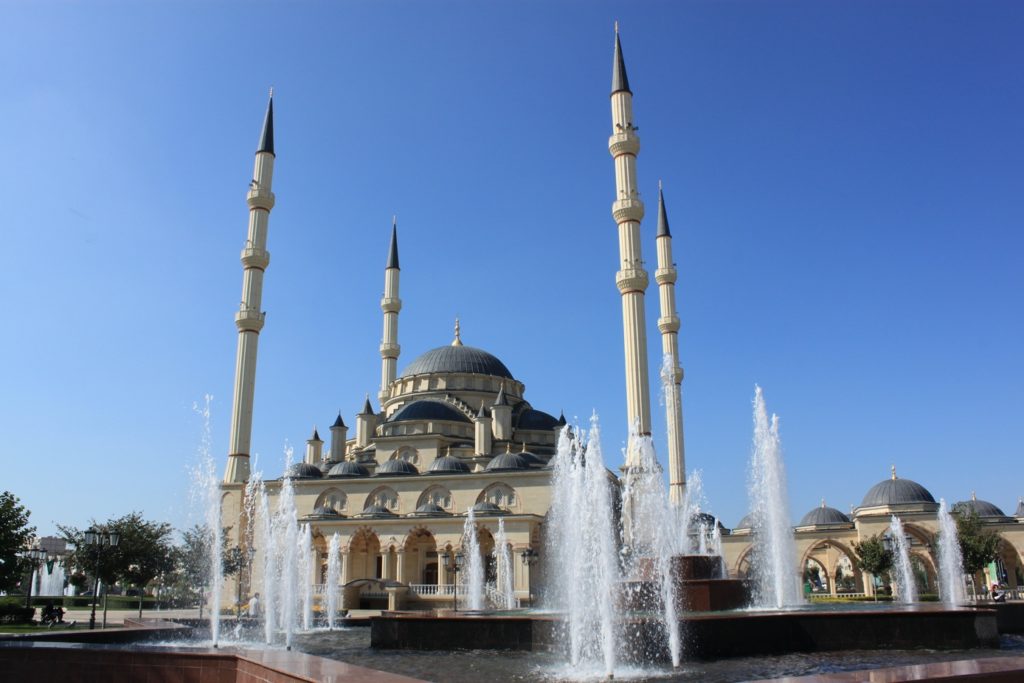
On Instagram, he touts their strength and discipline, offering a clear threat to insurgents. So far, his methods have delivered results and Islamist violence has significantly decreased in the country. This has solidified his authority and served as a major political victory for Vladimir Putin. Part of this strategy has been a strict interpretation of Islam.
Online, he maintains a steady stream of overtly religious posts, and in public statements he insists that women wear headscarves and has supported ‘honour killings’ as part of what he calls a virtue campaign.
He has also endorsed men shooting at women in the streets with paintball guns, if they are not fully covered.
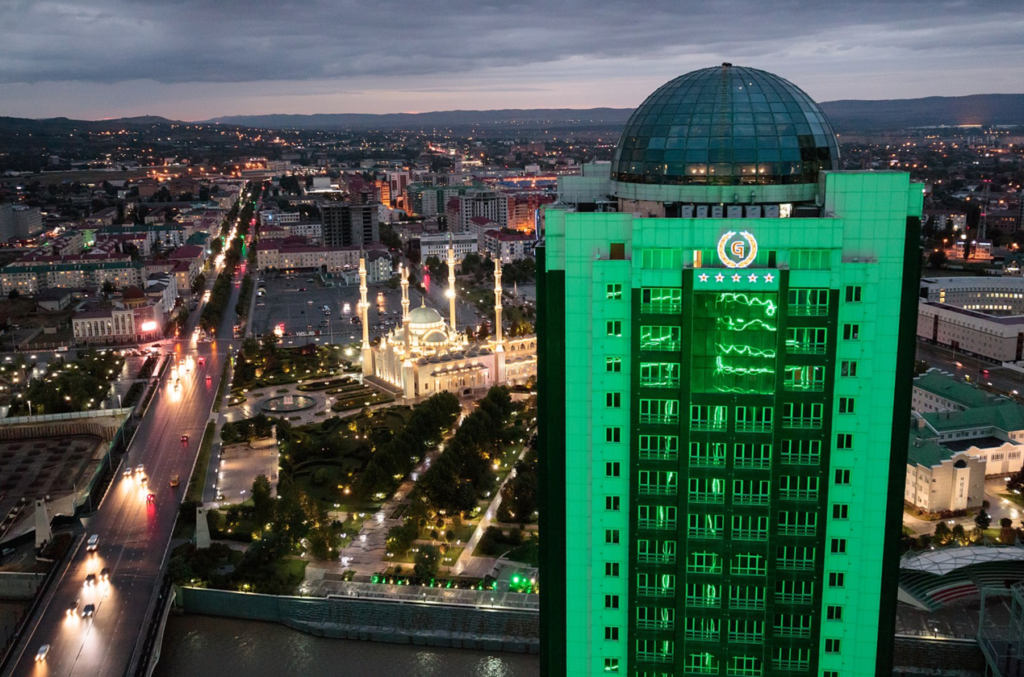
In addition to shaping his Islamic agenda, Kadyrov uses social media to craft a warrior persona that is based on historical notions of Chechen national identity. It is an identity that can be traced back to the early 20th century when Leo Tolstoy wrote about the Chechen rebellion in his book ‘Haji Murad’. Ever since then, ethnic Russians have perceived Chechens as fierce warriors.
And that image has played out over the course of history, from the two Chechen wars to the more recent images of Chechens fighting alongside ISIS militants in the Middle East.
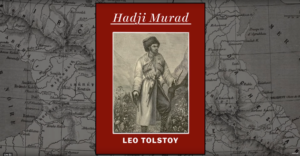
Nowadays, copies of Tolstoy’s novel come with a photo of a modern soldier on the cover.
The tough guy stereotype has also traveled beyond Russia; it is telling that a mobster in the film ‘The Dark Knight’ is known simply as ‘The Chechen’.
Kadyrov clearly channels that identity with his online posts on Instagram and other social media : physical training and martial arts video clips, fitness selfies, and close encounters with threatening creatures such as pythons and his pet tiger.
But Kadyrov also poses as the benevolent leader of Chechnia who enjoys quiet moments with domesticated animals, bike rides, playing with his friends, and performing the ‘Lezginka’ a traditional Caucasian dance.
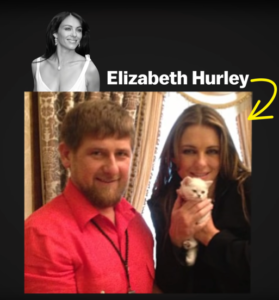
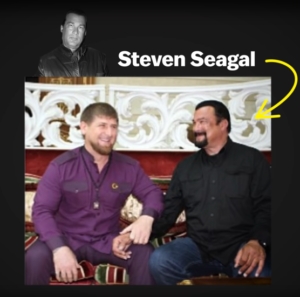
Other than hosting celebrities, Kadyrov constantly leverages his relationship with Vladimir Putin to bolster his authority.
On Instagram, he regularly demonstrates his allegiance to the Russian president, but at times, his enthusiasm backfires; after calling the Russian opposition ‘enemies of the state’ in 2016, he posted a photo of Mikhail Kasyanov, a Putin critic, between the cross-hairs of a rifle scope.
This was a reckless provocation that led some observers to wonder whether Putin might be losing control of Kadyrov.
Kasyanov was due to be named as successor to opposition leader Boris Nemtsov who was murdered in
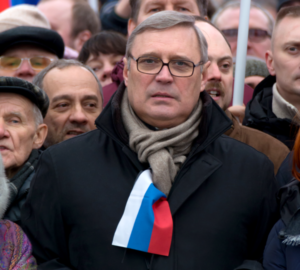
2015 by a former ally of Kadyrov. The Kremlin however dismissed any links to the Chechen leader and Putin gave Kadyrov a state award for his “services to Russia”.
This angered the Russian opposition, especially because a trail of evidence in Nemtsov’s murder led straight to the presidential palace in Grozny. Zaur Dadayev, recognised by court as the assassin was a member of a unit in the interior ministry in Grozny responsible for guarding and maintaining the security of the immediate surroundings of the Chechen leader.
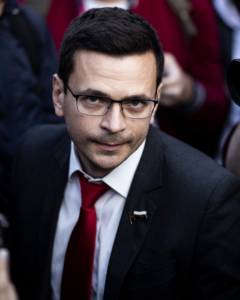
The Russian opposition could do nothing other than criticise Kadyrov and his supporters. Ilya Yashin, one of the opposition leaders in the Russian parliament had this to say during a parliamentary session : “The responsibility for creating unmanaged modes of government in the Caucasus rests on Vladimir Putin. The main task now is to demand the resignation of Ramzan Kadyrov. Putin placed a time bomb in the Caucasus which can trigger a third Chechen war.”
But this was essentially water off a duck’s back. Kadyrov is satisfied with his position as feudal overlord. For the time being, one person has iron control over Chechnya, the Russian Federation’s 95th Region, and he forces the entire country to act according to his will.
These incidents and other unsavoury events did not go unnoticed; Kadyrov’s nearly 3 million followers on Instagram constitute around twice the population of Chechnya and some of his posts have already led to repercussions from Moscow.
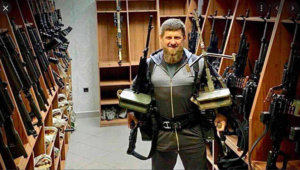
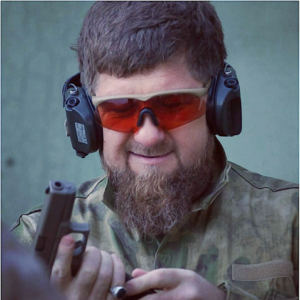
In 2017, he posted a clip from a Mixed Martial Arts (MMA) fight contest featuring a 10 year-old boy, including his own young sons who were seen exchanging violent blows and kicks. In response, Russia’s ministry of sports launched an investigation into the event. This led the then-Russian finance minister, Anton Siluanov to announce possible cuts to the Chechen budget. But as expected, no action was ever taken.
Later, Kadyrov’s persecution of gay people caused global protests and created fresh tensions. But by then, Putin had already summoned Kadyrov to the Kremlin for a meeting. But whether this did anything to change Kadyrov’s behaviour still remains to be seen. For the time being, Kadyrov continues to be Putin’s man in Chechnya and as long as he can keep the region stable, things will probably remain that way.
A FOURTH TERM COMING UP
Kadyrov’s loyalty to Russia and especially to Vladimir Putin was demonstrated yet again when fighting erupted in eastern Ukraine, following Moscow’s annexation of Crimea in 2014. Here, he showed his usefulness but also a certain degree of cynicism when he sent his security forces to fight alongside pro-Russian separatists, only to disown them later as “mercenary volunteers” who had traveled to Ukraine, without his official approval.
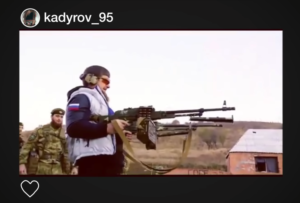
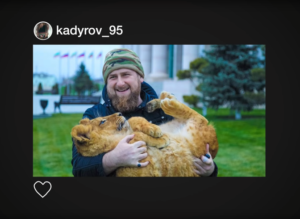
Kadyrov’s true status as a military commander is not clearly defined; he allegedly holds the rank of an Interior Ministry major general. However he has cemented his position as a federal politician by contributing clandestinely to Putin’s strategy of slowly dismembering Ukraine, as well as his role in the release of two Russian television journalists held by Ukrainian authorities in May 2014.
The pair were arrested on charges of supplying weapons to pro-Russian separatists in eastern Ukraine.
Kadyrov promptly posted a statement on Instagram condemning not only Ukraine’s efforts in trying to retain control of the eastern regions of its territory, but also the support shown by the international community for Ukrainian authorities, whose leadership he accused of taking “fascist measures”. He also issued a stark warning : “We have the real strength and possibilities to bring pressure to bear on those who are holding them captive, and we shall be forced to take harsh measures.”
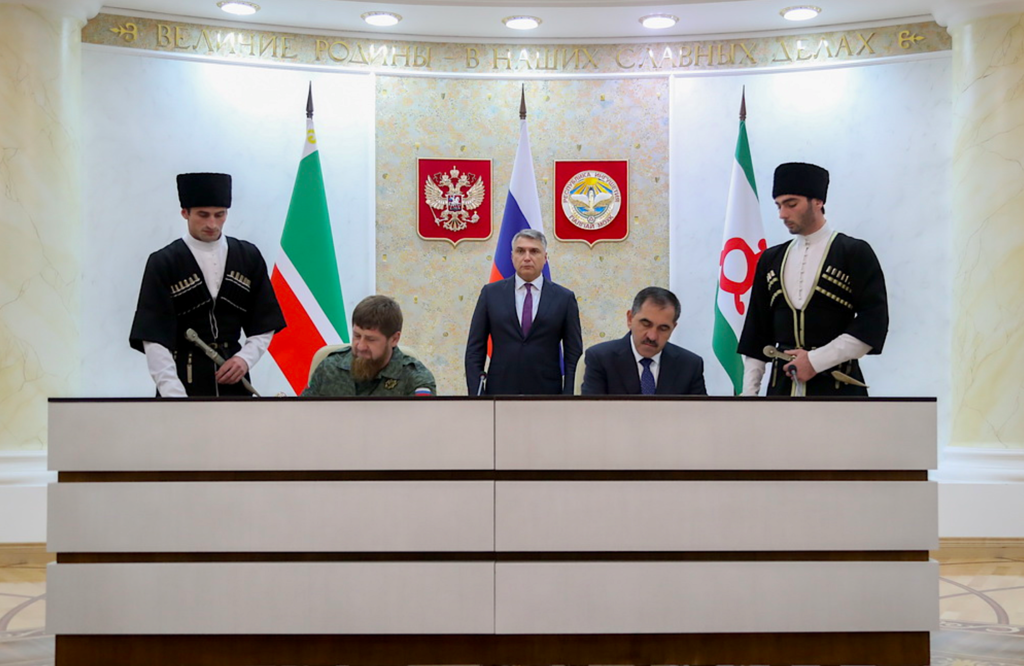
The fact that he publicly condemned the way the journalists were forced to kneel with carrier bags over their heads was very ironic, considering that this is nothing compared to the kind of torture that some detainees are subjected to in some of Chechnya’s secret prisons. He even had the gall to describe : ”Detaining people who have not done anything wrong” as “an inhuman crime !”
In her books “A Dirty War’(1999) and ‘A Small Corner of Hell’ (2003), the Russian investigative journalist Anna Politkovskaya chronicled the terrible suffering she witnessed in Chechen prisons. She was assassinated in Moscow in 2006, notably for her strong criticism of Russian policy in Chechnya, and especially the corruption and arbitrary brutality of the Chechen leadership.
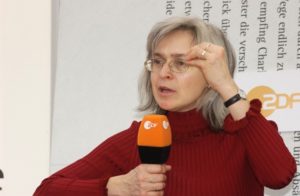
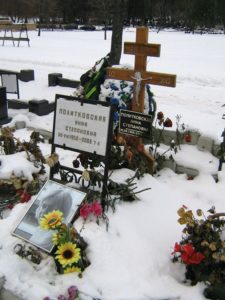
In February 2016, shortly before elections were due to be held for a new head of the executive of the Chechen parliament, Kadyrov made a most surprising statement on state-run television : “For Kadyrov, this is the peak… My time has passed…There are lots of successors on our team. We have got very good specialists.”
But this proved far from being the end of Kadyrov’s notorious run as the region’s strongman. The declaration was in fact, the beginning of an elaborate campaign to have him remain in power. There were emotional scenes of weeping women and children holding placards with pictures of Kadyrov and slogans begging him to stay on.
There was even a statement from the Rights Ombudsman’s office indicating that the resignation of the head of state would be tantamount to a violation of the rights of every Chechen !
Another statement from an alleged civic group, hitherto unknown, read : “ Society sees no alternative to Kadyrov, and there can be no talk of successors.”
As widely expected, Kadyrov changed his mind, if in fact, his intention had really been to leave office. In the event, he organised a last-minute formal campaign and won a third term in office with 98% of the vote !
Now, five years on, that term is coming to an end and Chechnya will hold elections for the head of the republic at the same time as Russia goes to the polls for its legislative elections on 17-19 September, 2021.
Unsurprisingly, Kadyrov is widely expected to win another term despite his appalling record of human rights abuses, described by Human Rights Watch as : “egregious cases of torture, public humiliation, enforced disappearances, and extrajudicial killings.”
Following an event held in Grozny in June 2021 entitled ‘Global Congress of the Peoples of Chechnya’, in which some 5,000 delegates from 23 countries participated, a procession headed by Chechnya’s chief mufti made their way to Kadyrov’s residence.
There, they urged the head of state to heed their call : “In the name of all the clans, all the villages, and all the respected figures of Islam not to abandon them on this path.”
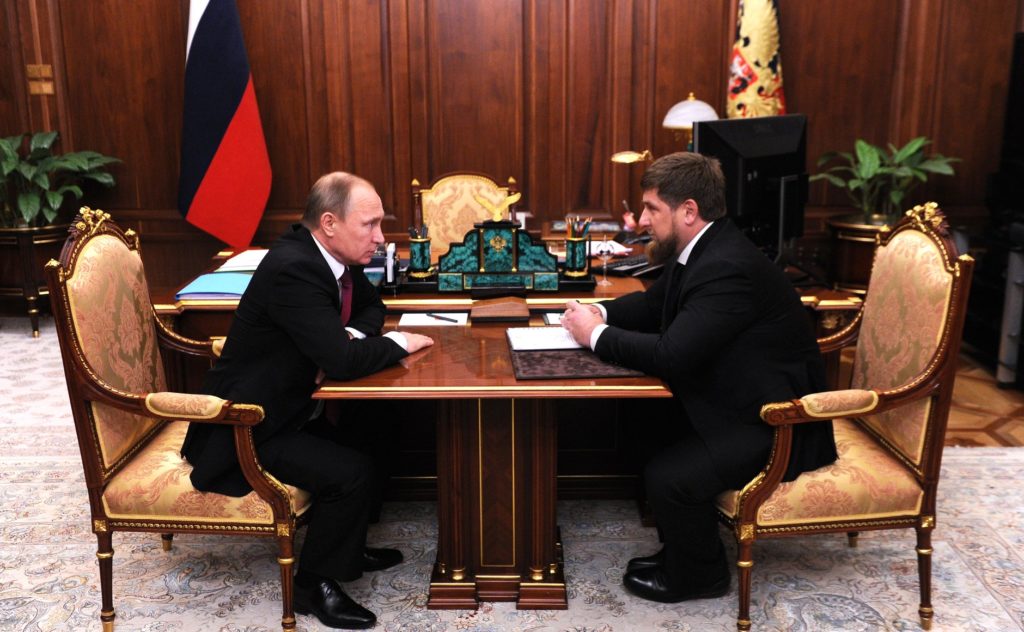
And his benefactor Vladimir Putin said : “For my part, I wish you only success.”
This is just one recent sample of the cynicism exercised by Vladimir Putin.
By fostering a climate of impunity, Moscow bears ultimate responsibility for the lawlessness, corruption and brutality of the Chechen political establishment.
So where does his strength lie, the strength that has allowed him to impose himself so solidly ?
The simple answer is : his thousands of armed supporters. The ‘sine qua non’ condition for amnesty for former rebels is that they join the police. They can refuse, but they will never be able to have another job.
They will not be taken on as government officials in the civil service and will never be allowed to do business. The official explanation is that the experience of criminals is an invaluable asset in the fight against crime.
But there is another hypothesis that is more credible: Kadyrov is cultivating a nation of employees and officials on government pay. People who are entirely dependent on the local and national leadership, personal assistants in battle dress with automatic weapons, given to them so as to be able to maintain an illusory sense of dignity.
Ramzan Kadyrov, who seems unable to stand up to a strong and intelligent opponent, has devised a simple plan that can work for years, as long as the Russian federal budget feeds Chechnya to finance endless reconstruction projects and fight terrorism.
If he collects these funds in a skillful and measured way, Kadyrov can have enough resources to give the impression of a renaissance, fight the Wahhabis, pay Hollywood film stars, entertainers and international sports personalities and maintain a personal army.
One can understand Kadyrov. Under normal circumstances, he would not have had much of a chance of holding a position commensurate with his ambitions.
After all that Kadyrov has done in the last few years, he does not have much chance of surviving, once he is no longer in this position. He and his men, the Kadyrovtsy, are suspected of having participated in some of the worst abuses of the dirty wars alongside the Russian forces: kidnappings, human trafficking, raids and assassinations.
For him, the only solution is to run Chechnya for as long as possible, but not without creating discontent that will swell the ranks of the opposition forces. And this is much more worrying than the fable of a strong Ramzan Kadyrov, in the role of the benevolent despot leading a make-believe, ideal democracy into the future.
By encouraging Ramzan Kadyrov to run for yet another term, the Russian president is sending another signal to the residents of Chechnya that he has no intention of allowing them to hope for a better future, characterised by political freedom, justice and the rule of law.

